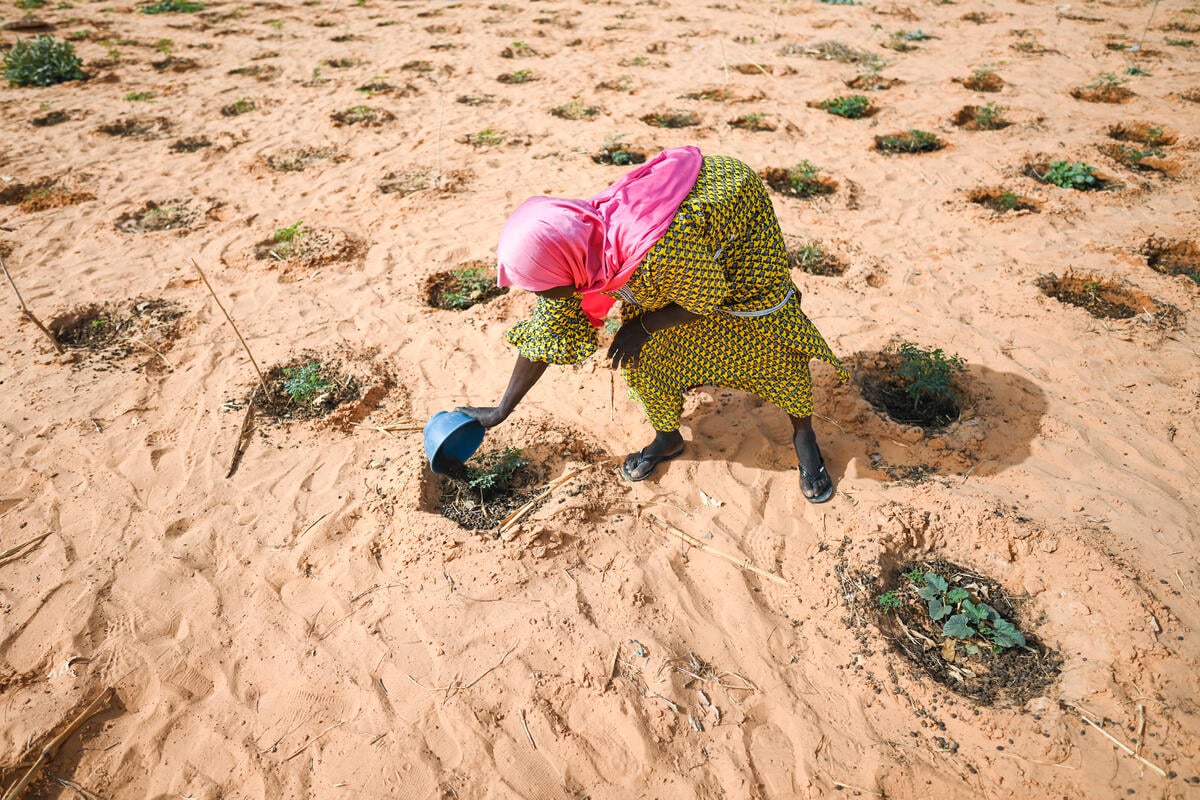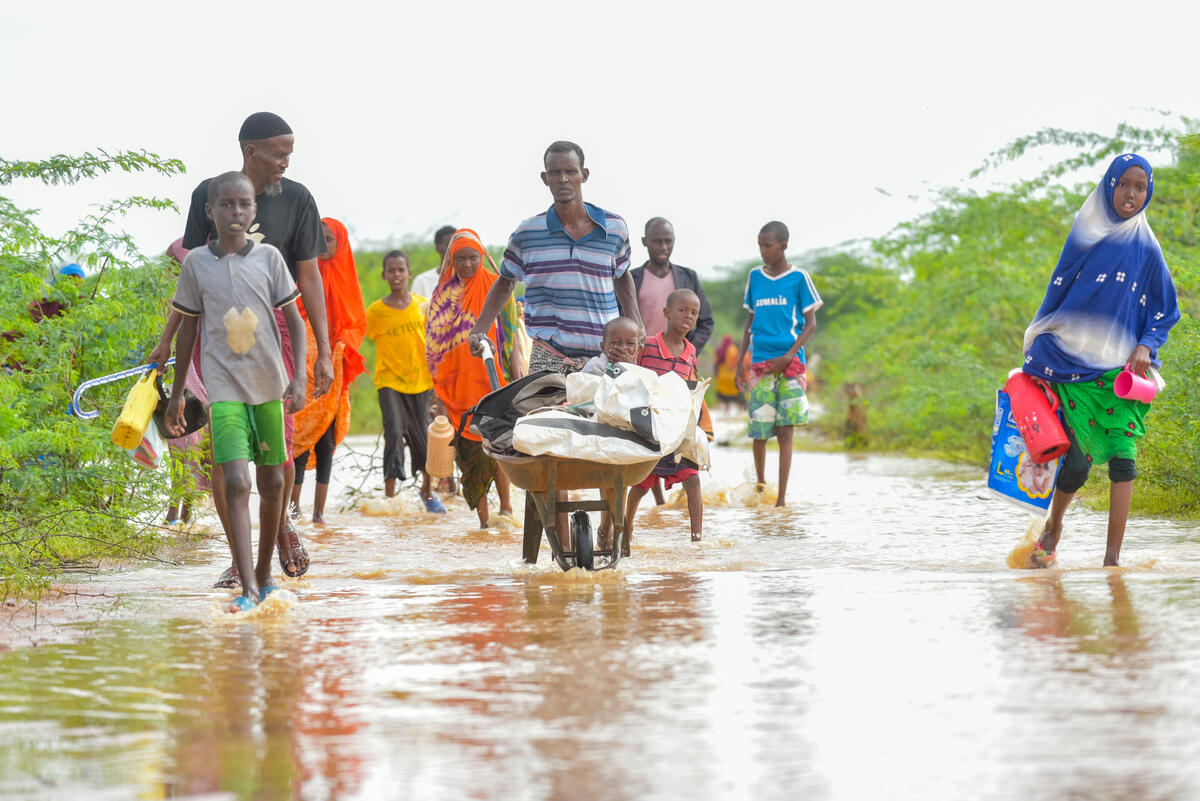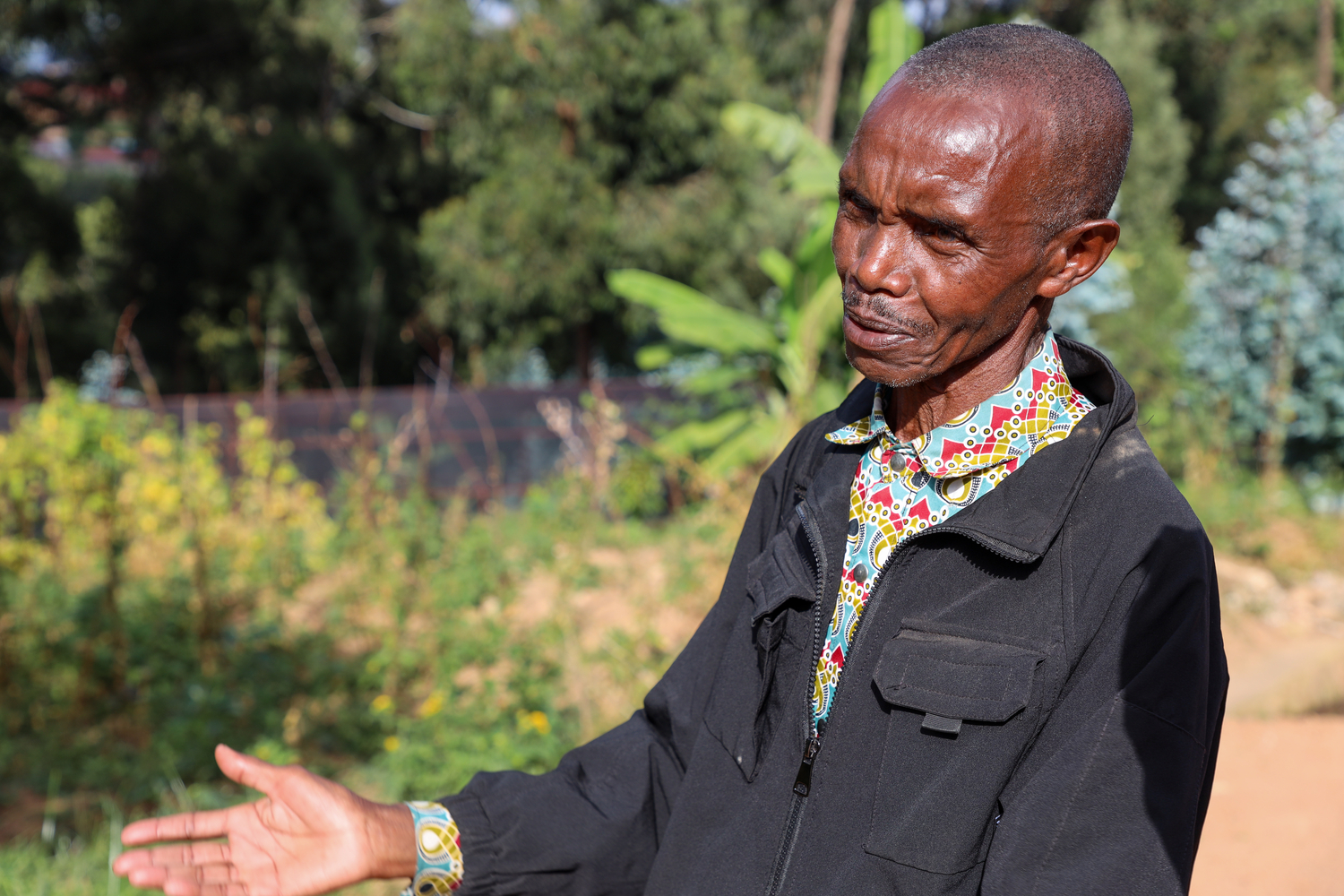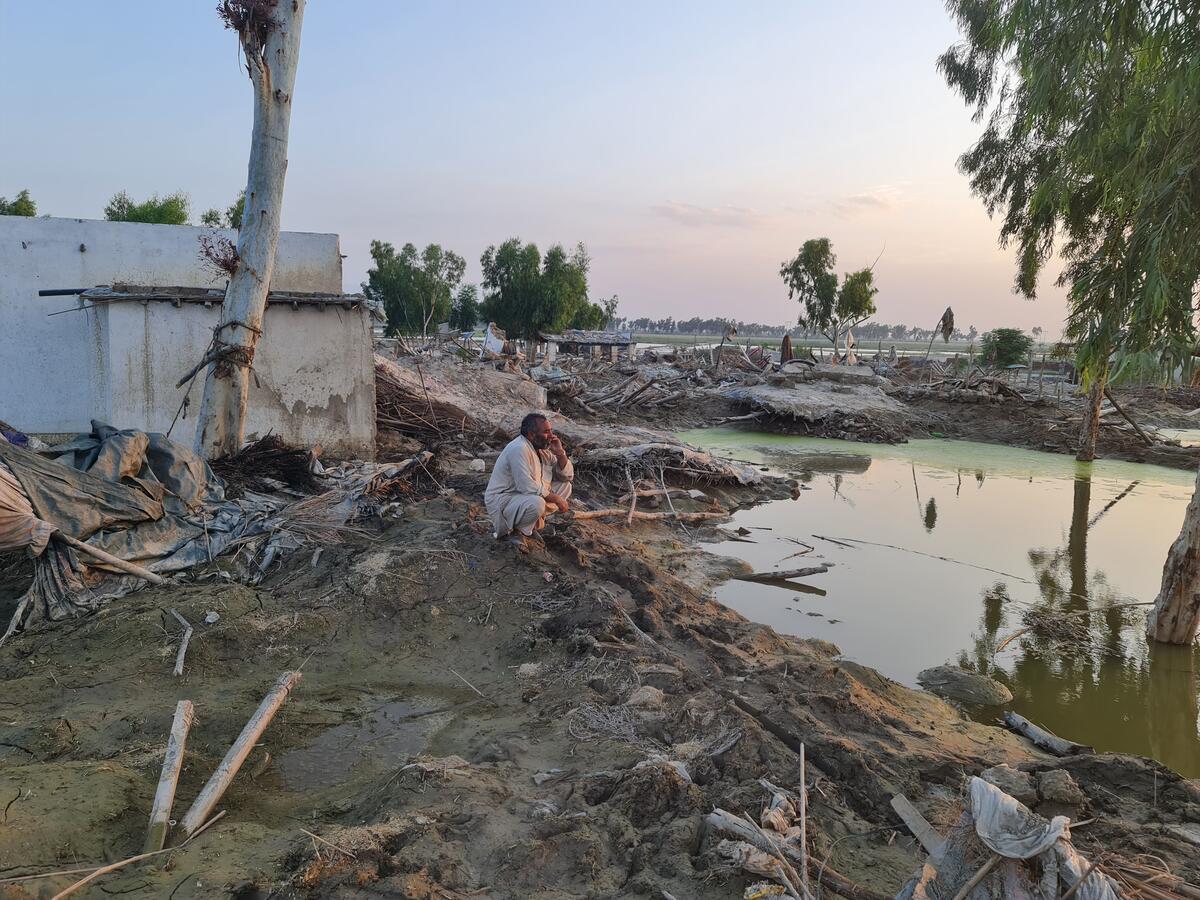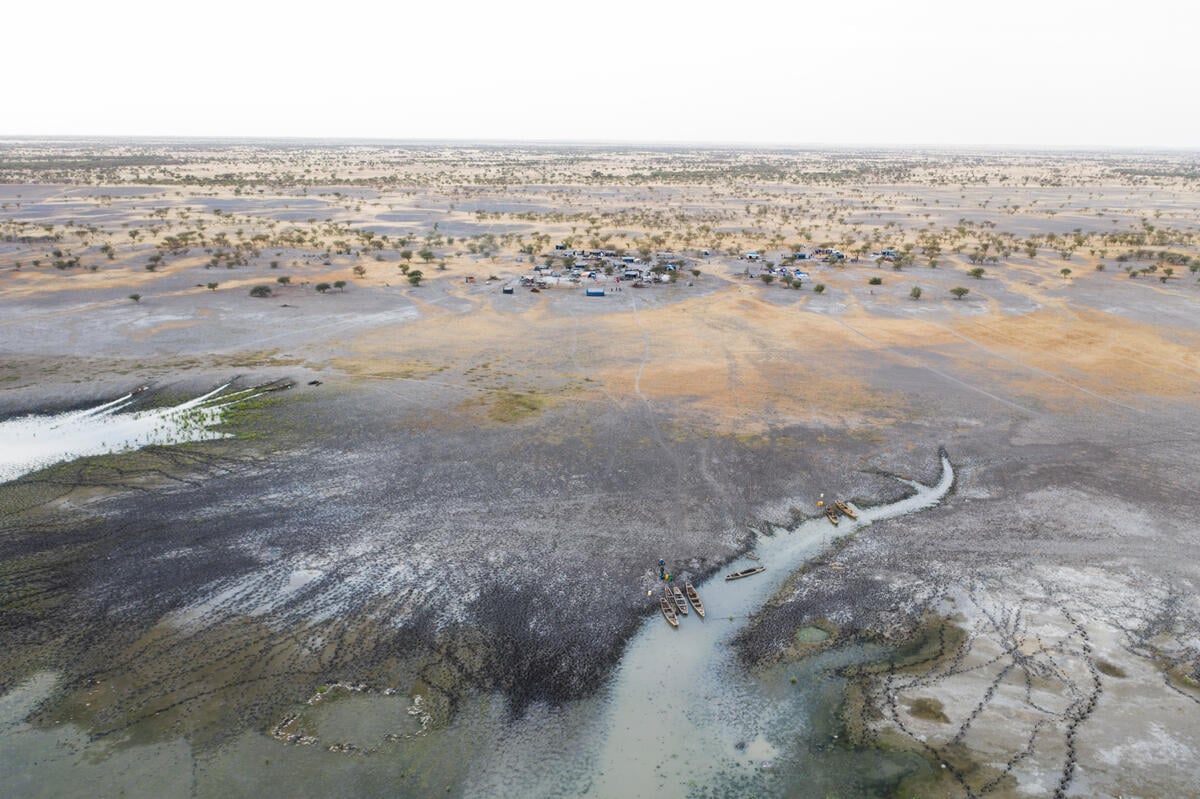Refugees and locals in Mauritania exchange strategies for adapting to climate change
Refugees and locals in Mauritania exchange strategies for adapting to climate change
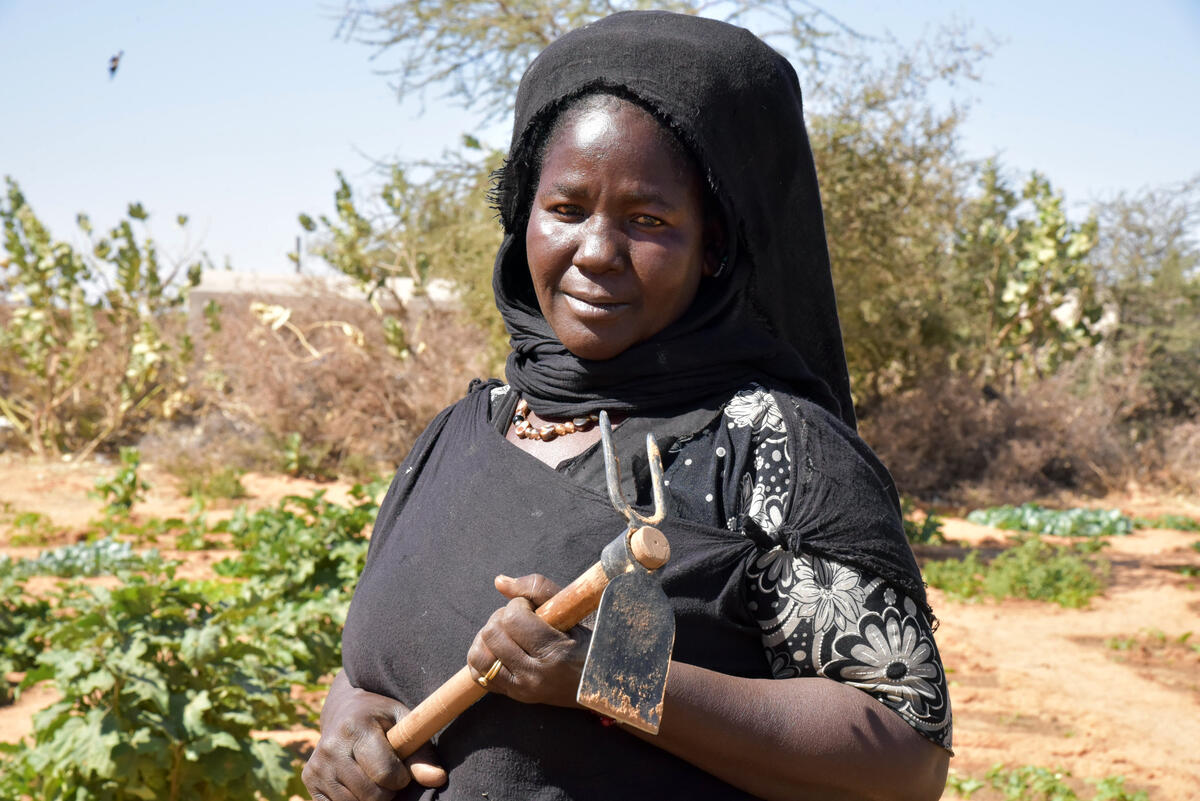
When Ahmedou Ag ElBokhary arrived at Mbera refugee camp in south-eastern Mauritania after fleeing Mali’s conflict in 2012, he was surprised by the lack of vegetable gardens in nearby villages.
“When we arrived here, there were gardens only in Bassikounou and Fassala [the two main towns in this part of Mauritania’s Hodh Chargui region]. All the small villages around had no gardens,” he recalls.
Like much of the Sahel region, both Mali and Mauritania are feeling the effects of climate change – from increasingly unpredictable rainfall, to land degradation and desertification. But back in Mali, ElBokhary and his compatriots had found ways to coax life from the soil. They conserved the little water available by using sunken seed beds and compost and planted seeds they knew could withstand the heat.
When they fled to Mauritania, they brought some of those seeds with them and started small gardens in the camp, using the same techniques to cope with the hot, dry conditions.
"There is a lot of knowledge that we are exchanging."
In the nine years since, they have shared some of those techniques with Mauritanians from the surrounding community who are now growing many of the same varieties of cassava, tomatoes, papaya and other crops.
“We brought the papaya here, people thought we couldn't grow it,” says ElBokhary, who worked for the Regional Chamber of Agriculture in Timbuktu before he fled Mali. “This year we were asked to make a papaya nursery. The people of Bassikounou and all the villagers came to see. We taught them how to grow it and they showed us other seeds we didn’t know about. There is a lot of knowledge that we are exchanging.”
The refugees in turn, have learned from local Mauritanians how to reduce the impact of their livestock on the land by turning grass into hay and sileage for feeding their animals during the dry season.
“I find that the twinning between the locals and the refugees has given us a lot of experience, as well as to the local community,” says ElBokhary. “It is with us that they learned the system of gardens … We also learn. We learned here many things that we did not have at home.”
Fouda Ndikintum, a livelihoods officer with UNHCR, the UN Refugee Agency, in Mauritania, notes that the climate in Mbera and the climate across the border in Mauritania are “basically the same, and the effects of climate change are felt in the same way.”
Some of the exchange of knowledge between refugees and locals on how best to adapt to those effects has taken place through formal channels, such as exchange visits between local and refugee gardeners organized by UNHCR partner, SOS Desert. But, according to Ndikintum, much of it has happened informally.
“Refugees and the host community interact – they go to the same markets, some refugees live outside the camp in host communities – this allows them to exchange experiences,” he says.
Interactions between refugees and locals are not limited to discussions of agricultural techniques. Several years ago, Malian refugees set up a team to protect Mbera camp and surrounding villages from the bush fires that have become more frequent and dangerous due to climate change.
Heavy rains during the wet season promote the growth of long, green grass in the fields surrounding Bassikuonou, but the arrival of the dry season, which lasts from April to December, turns the grass into straw. When bush fires ignite, they are quickly spread by the Harmattan, an easterly hot wind.
In the beginning, the Refugee Fire Brigade was a group of volunteers with no training but a strong will to help. Recognizing their value, UNHCR and partners trained around 100 refugees on how to create fire breaks and safely put out fires.
ElBokhary is the president of the Fire Brigade. “Now, every time there is a bush fire, UNHCR sends us vehicles and we refugees get on board, escorted by gendarmes. We arrive at the scene to join the authorities and put out the fire,” he explains.
In 2020, refugees played a substantial role in putting out at least 22 bush fires in the Bassikounou department. In addition, says Ndikintum, the refugees create firebreaks that cause minimal damage to the environment.
“Before the refugees came, the host community would use machinery to create firebreaks and in the process a lot of trees were lost, and soil eroded,” he says. “The way it’s done now with the refugees, they use machetes to cut some branches so the trees aren’t destroyed, and pastures can regenerate.”
"If we leave, people will not say that the refugees made them miserable."
The arrival of refugees has doubled the population in this area of Mauritania, but conflict between locals and refugees over scarce natural resources has been minimal. “According to representatives of village committees, they’re very appreciative of refugees’ participation in protecting the environment,” says Ndikintum.
For refugees like ElBokhary, helping to protect the local environment is a way of giving back to the community that has hosted them for nearly a decade. “We want to go back home, but the projects we have are projects for the area. If we leave, people will not say that the refugees made them miserable, they will say that we returned with our heads held high.”
He adds: “There is a proverb in Tamashek that says, ‘Whoever has planted a tree has not lived in vain’.”





